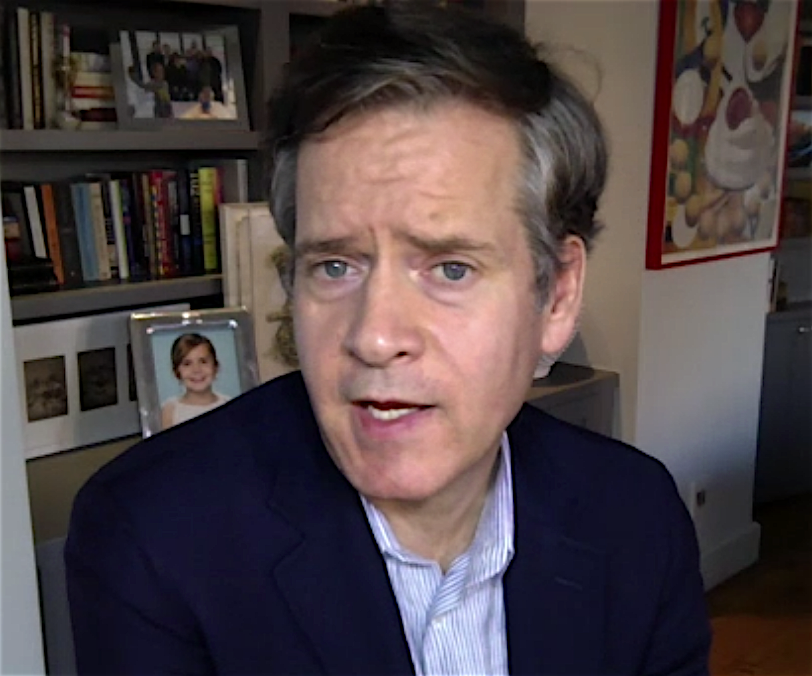BY THE VILLAGE SUN | Keep to-go going!
State Senator Brad Hoylman wants to extend for two more years the law change that is currently allowing bars and restaurants to sell alcohol for takeout and delivery during the coronavirus pandemic.
Governor Cuomo announced the new regulations by the State Liquor Authority on March 16. People are also required to buy food along with their takeout or delivery alcohol.
Hoylman explained the idea during the Zoom virtual meeting of Community Board 2 on Thursday evening.
“The thinking behind this is our restaurants and bars are really on a knife edge,” he said. “They need a leg up — and the only thing keeping them alive right now is these alcohol sales.
“It’s trying to give them that lifeline that small businesses need,” he added. “This is one regulatory fix that I’m looking for feedback on from the community boards.”
No members voiced any objection to the idea, though the board isn’t at the point of holding a vote on the issue yet.
In addition, beyond takeout alcohol, Carter Booth, the C.B. 2 chairperson, said when the city’s economy reopens from the “Pause,” the body should also take steps to help local restaurants on the dining front.
He noted that Board 2 probably has the most sidewalk cafes of any community board in New York City.
When restaurants are allowed to reopen, they will probably be restricted to operating at only 50 percent capacity, Booth pointed out.
One thing C.B. 2 should advocate for is to allow restaurants to have more outdoor seating, according to the chairperson.
“We want to afford them a way to bridge the next few months,” he said. “We’re not talking three tables and six seats. We’re talking 10 tables, 20 seats or more for larger restaurants.
“They need this to make their Friday and Saturday nights work,” he said of local restaurateurs. “Tourists are not coming. This is for local people to come out and eat.”


With all due respect to Senator Brad Hoylman and CB2 Chair Carter Booth, their proposals are short-sighted would-be disasters. Nightlife, much of which are not “small businesses” but rather multimillion-dollar corporations with a cottage industry of well-heeled lawyers and lobbyists, would benefit, but what about residents of those neighborhoods that were already over-licensed before the PAUSE and suffered from daily and nightly assaults of noise and other industrial pollutants: garbage, cigarette and kitchen vent smoke, and the droning of refrigeration, private carters, and grease-trap cleaners making their rounds beneath our children’s bedroom windows? Extending beyond the PAUSE eating and drinking from takeout counters and sidewalk cafes three times their current size would be painful for many of us, and difficult to discontinue later.
Furthermore, expanding sidewalk cafes from six to 20 seats would time poorly with the projected next wave of COVID-19, and presumably the need for business relief from it. Colleges and universities around the country are planning to shorten their Fall academic semesters to have students stay home after Thanksgiving, because it is at the beginning of December, during flu season, that experts expect a second wave of COVID-19. Tripled sidewalk cafes will not help eating and drinking establishments in December, January, and February when they’re likely to need help most.
Could it be that our economy no longer sustains—or even needs, with a lull in tourism—the level of eating and drinking out that had become commonplace before the PAUSE? Rather than propping up an industry that is contracting, it might be more productive to redirect human activity in other, needed, directions.
Ultimately, it’s not the wealthy who would be subjected to the ill effects of these proposals but rather middle- to low-income residents around Petrosino Square, Hell Square, etc., many of whom cannot afford to drink and dine out at the glut of eateries in their midst and who may prefer to eat from their home kitchens anyway. Leaders at the national, state, and municipal level failed us heading into this pandemic. If nightlife is worthy of a financial bailout, it should come from those quarters, not at the expense of innocent bystanders who have also been harmed by COVID-19, financially, socially, and most tragically, medically.
Georgette Fleischer
President, Friends of Petrosino Square